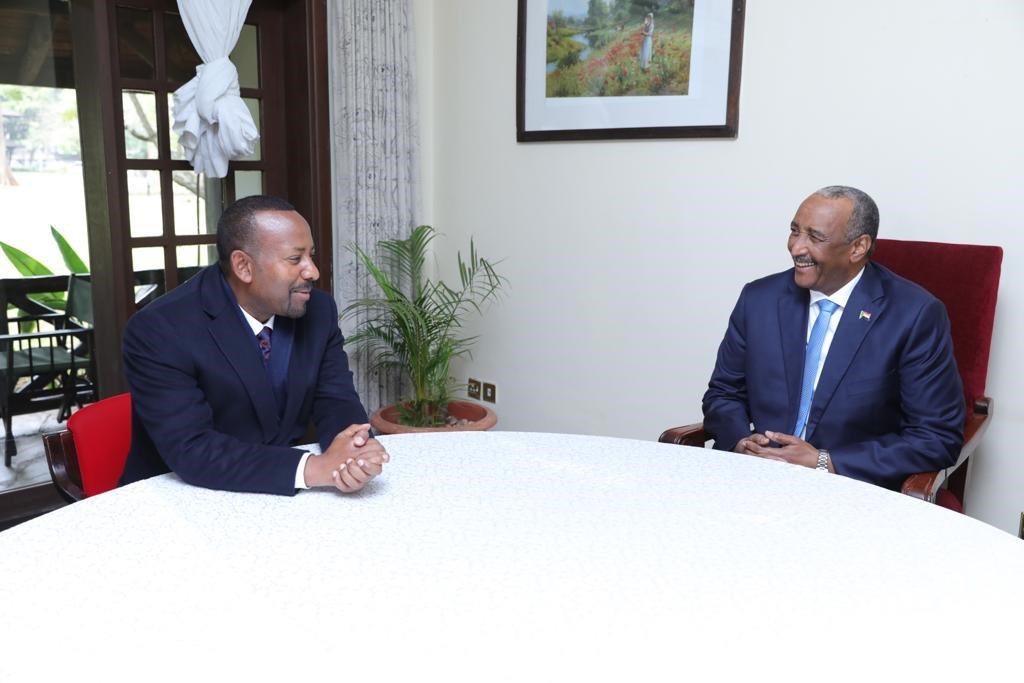Ethiopia, Sudan agree to peacefully resolve border problems
Ethiopia and Sudan's leaders hold a bilateral meeting and agree to resolve border issues.
-

Burhan said during the meeting that the two could agree on technical issues regarding the Grand Ethiopian Renaissance (blnews)
Sudan's de-factor leader and the leader of its Sovereignty Council, General Abdel Fattah Burhan, met with Ethiopian Prime Minister Abiy Ahmed and agreed to resolve border issues between their two countries peacefully.
The Sudanese leader's office said on Saturday that the two leaders held a bilateral meeting on the sidelines of a conference on security in Africa being held in the city of Bahir Dar.
This visit by Burhan takes place a few months after some problems took place on the border between the two, wherein Sudan accused Ethiopia of executing seven soldiers and one civilian following armed clashes.
Burhan's office said in a statement, "Both sides stressed the need to resolve all border issues peacefully through specialized technical committees."
The Sudanese President said during his meeting with the Ethiopian leader that the countries could agree on technical issues regarding the construction of the Grand Ethiopian Renaissance Dam.
Consensus between Sudan's political forces in sight: Burhan
In related news, Burhan said on Saturday that Sudan's political forces are close to reaching an agreement and forming a new government.
According to the Sudanese news agency SUNA, the Sudanese leader said at a forum in Ethiopia's Bahir Dar, "The indications have become more positive, they inspire optimism and bode well for the near-term success of consensus-building among most political and social forces in the country."
These positive signals, he said, "add guarantees of transitional stability and the formation of a civilian government."
Sudan's military seized power in an October coup, breaking a power-sharing agreement with civilian pro-democracy parties and plunging the country into political and economic chaos.
As mediation efforts failed, civilian groups have called for the military to completely exit politics.
Hundreds of demonstrators continue their protests against the military leadership, against the backdrop of measures taken by Al-Burhan on October 25 last year.
These measures led to the dissolution of the civilian government headed by Abdullah Hamdok and the suspension of some provisions of the constitutional document signed between the military component and civilians, in September 2019, which was considered by civilians as a “coup against the legitimate authority and a disruption of the constitutional document.”

 3 Min Read
3 Min Read








